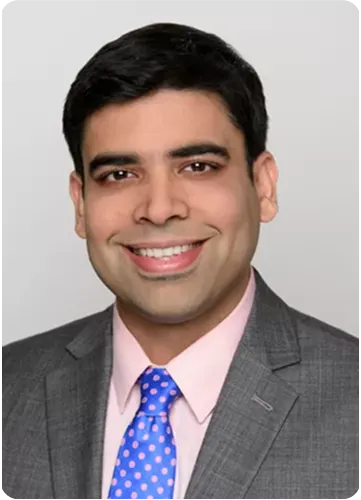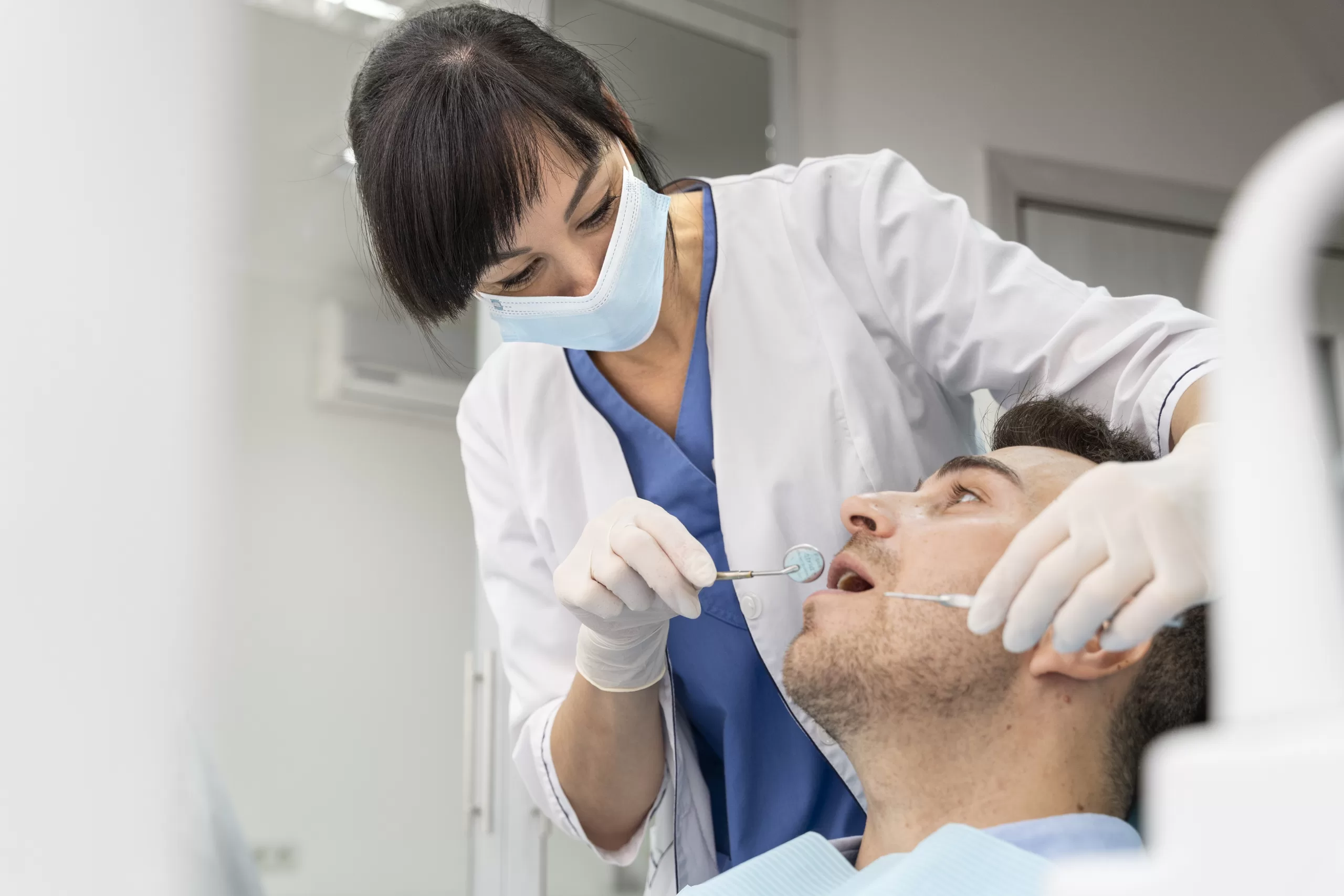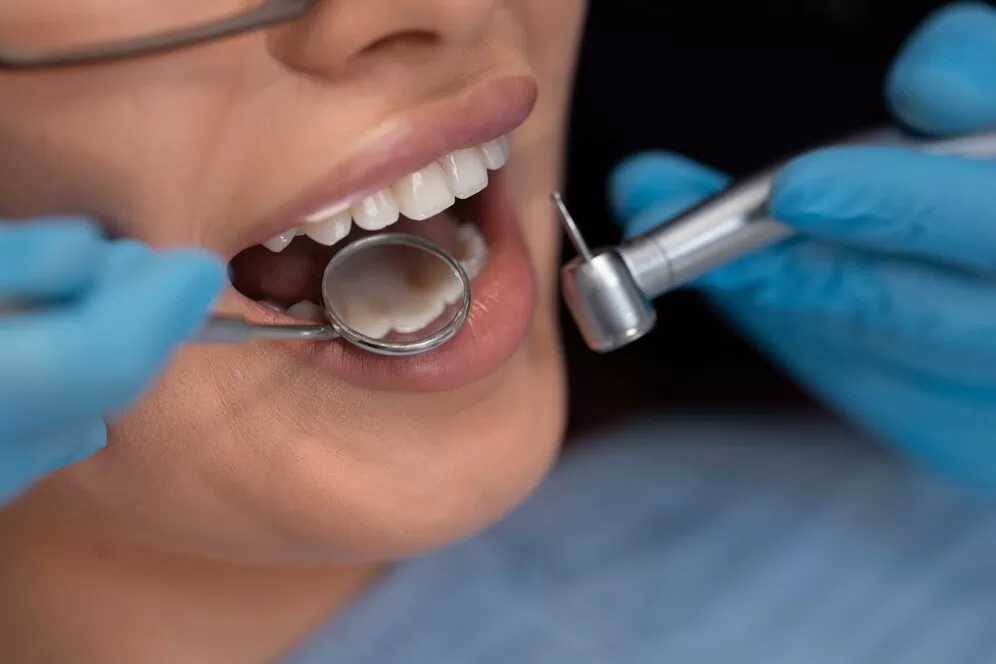If you have experienced tooth loss or anticipate needing a tooth extraction, you likely qualify for dental implants. Implants have become the gold standard for tooth replacement, offering long-lasting and natural-looking results that restore your smile while preserving your oral health. Even if you have experienced extensive tooth loss, dental implants may still provide a way forward for full-mouth rehabilitation.
One question to consider is which oral health professional you will enlist to place your dental implants. While some dentists and periodontists offer to perform implant surgery, selecting a trained and certified oral surgeon is generally more advantageous. A board-certified oral & maxillofacial surgeon like Dr. Mehrotra has completed additional 6 years of surgical training (after graduating dental school) focused on the jaw and face. This additional training and experience make an oral surgeon the ideal professional to place dental implants.
What is a Board-certified Oral Surgeon? How to find a Board-certified Oral Surgeon?
‘Only the most skilled and research-driven surgeons hold board certification in oral and maxillofacial surgery—so it’s important to ask if your oral and maxillofacial surgeon is board-certified.’- American Board of Oral & Maxillofacial Surgery
‘Oral and maxillofacial surgeries, in particular, demand mastery of your surgeon: Many oral and facial surgery procedures are performed on highly visible areas of the face and mouth that also are functionally quite complex. As such, they require your surgeon to have both the skills to achieve harmony of function and aesthetics after your surgery.
Certification from ABOMS offers you, as a patient, assurance that you can trust your surgeon’s expertise. It is widely considered to be the highest credential in the field because we ensure each of our Diplomates has undergone the above rigorous processes on an ongoing basis. Our surgeons continually demonstrate baseline expertise, up-to-date research in best practices, and specialty understanding of oral and maxillofacial procedures.’ – American Board of Oral & Maxillofacial Surgery
Please click on the link below to see Dr. Mehrotra’s profile on the ABOMS website:
Please click on the link below to see Dr. Mehrotra’s profile on the MYOMS website:
Please click on the link below to see Dr. Mehrotra’s profile on the RWJ Somerset website:
https://www.rwjbh.org/doctors/prakhar-mehrotra-dds/
What Are Dental Implants?
A dental implant is a small, titanium post surgically inserted into the jawbone. It fuses with the bone and then serves as an artificial tooth root, providing a steady anchor for artificial replacement teeth.
Dental implants are considered the most advanced clinical option for tooth loss, as they look and behave just like your natural teeth. Unlike other tooth replacement options, implants actively preserve your jawbone and do not require any healthy teeth to be altered or compromised. And, with the right oral hygiene, implants can last a really long time.
Supplemental Treatments to Prepare for Implant Placement
It is very common for dental implant patients to need supplemental surgeries to prepare their mouths for safe and successful implant placement. Some patients may also require IV sedation due to dental anxiety. Another example is if you have an inadequate jawbone, you may need to have a bone graft performed, regenerating bone tissue in order to hold your implants in place. And if you have low sinuses, you may need a sinus lift, ensuring your implants do not adversely affect your sinus cavities.
In these situations, a skilled and board-certified oral surgeon is essential to make you a more viable candidate for effective implant placement. Board-certified oral surgeons like Dr. Mehrotra have additional 6 years of training, which also includes extensive experience in administering safe in-office anesthesia.
Implant Placement Following Bone Loss and Trauma
Two specific situations in which an oral & maxillofacial surgeon’s skills are essential: Bone loss and trauma.
Bone loss typically occurs when you lose a tooth root, and your jaw no longer receives the stimulation it needs to remain healthy. The loss of stimulation may cause your jawbone to atrophy, leading to unwanted changes to your facial appearance. As noted above, this can also complicate dental restoration, making a bone graft necessary before the implants can be positioned.
Another situation that requires specialized surgical care is trauma. If you lose a tooth due to a traumatic accident, you may also have physical issues with your jawbone, which can complicate the restoration process. A surgeon’s skill is needed to restore you to full oral health.
Additional Reasons to Choose an Oral Surgeon
Some additional reasons to choose an oral surgeon for your implant placement include:
- Oral surgeons have additional 4-6 years of specialized training necessary to respond to any complications that emerge during implant placement.
- Oral surgeons can typically offer a wider range of anesthesia and sedation options, promoting your comfort during treatment.
- An oral surgeon may have advanced clinical technologies to ensure precision in your implant placement, resulting in better results and shorter surgical timelines.
- Their specialized training allows oral surgeons to complete your treatment more quickly and with less risk of irritation, complication, or implant failure.
Find out more about choosing a board-certified, dual-degree oral & maxillofacial surgeon to perform your dental implant placement in Basking Ridge, NJ, at Ridge Oral Surgery & Dental Implants.





